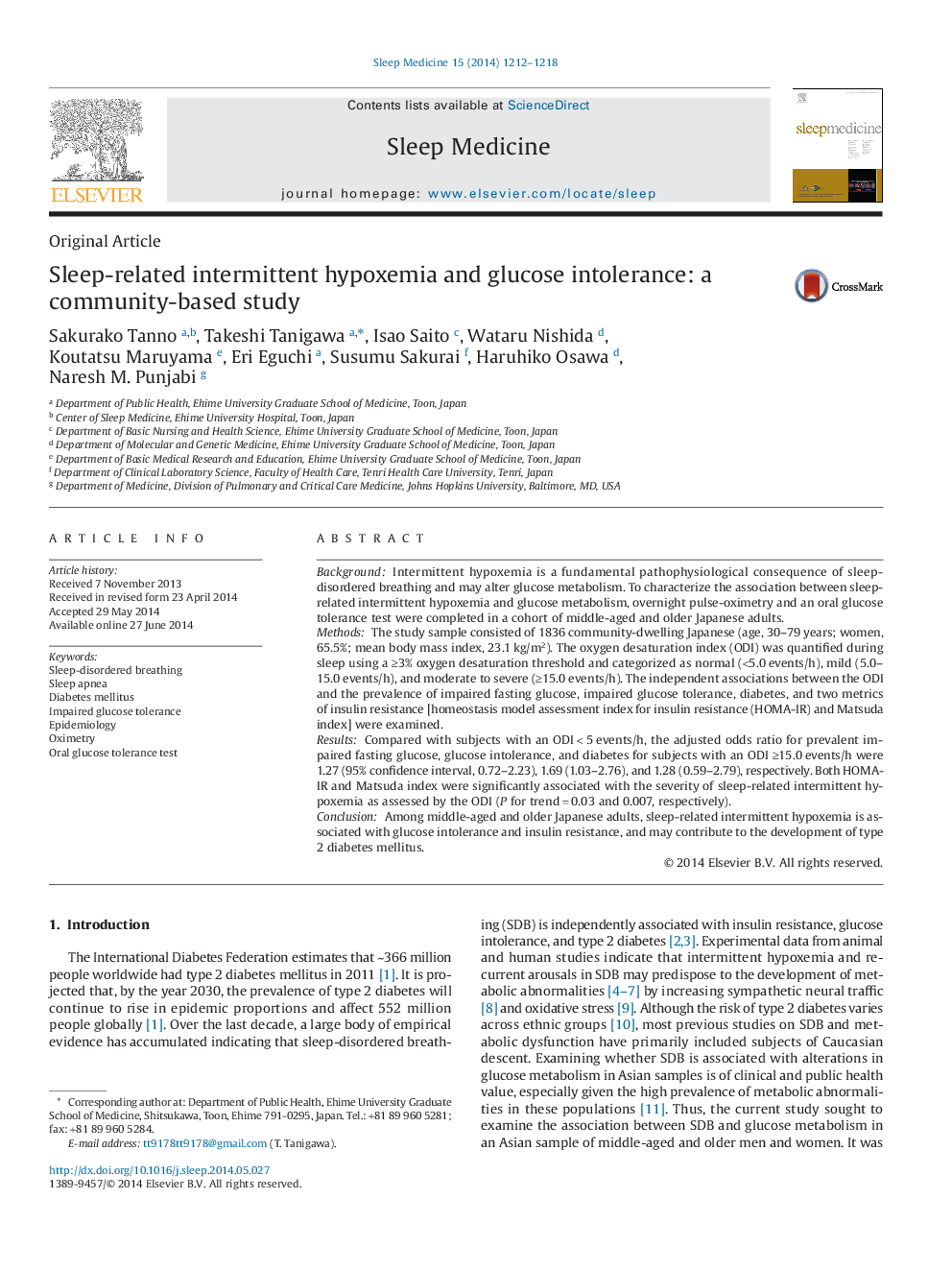| Article ID | Journal | Published Year | Pages | File Type |
|---|---|---|---|---|
| 3176062 | Sleep Medicine | 2014 | 7 Pages |
•The association between sleep-disordered breathing and glucose intolerance was evaluated.•Oximetry and oral glucose tolerance test were used to evaluate the association.•Participants were 1836 men and women aged 30–79 years living in rural areas of Japan.•More post-load hyperglycemia was found in a group with sleep-disordered breathing.•Insulin resistance is associated with severity of sleep-disordered breathing.
BackgroundIntermittent hypoxemia is a fundamental pathophysiological consequence of sleep-disordered breathing and may alter glucose metabolism. To characterize the association between sleep-related intermittent hypoxemia and glucose metabolism, overnight pulse-oximetry and an oral glucose tolerance test were completed in a cohort of middle-aged and older Japanese adults.MethodsThe study sample consisted of 1836 community-dwelling Japanese (age, 30–79 years; women, 65.5%; mean body mass index, 23.1 kg/m2). The oxygen desaturation index (ODI) was quantified during sleep using a ≥3% oxygen desaturation threshold and categorized as normal (<5.0 events/h), mild (5.0–15.0 events/h), and moderate to severe (≥15.0 events/h). The independent associations between the ODI and the prevalence of impaired fasting glucose, impaired glucose tolerance, diabetes, and two metrics of insulin resistance [homeostasis model assessment index for insulin resistance (HOMA-IR) and Matsuda index] were examined.ResultsCompared with subjects with an ODI < 5 events/h, the adjusted odds ratio for prevalent impaired fasting glucose, glucose intolerance, and diabetes for subjects with an ODI ≥15.0 events/h were 1.27 (95% confidence interval, 0.72–2.23), 1.69 (1.03–2.76), and 1.28 (0.59–2.79), respectively. Both HOMA-IR and Matsuda index were significantly associated with the severity of sleep-related intermittent hypoxemia as assessed by the ODI (P for trend = 0.03 and 0.007, respectively).ConclusionAmong middle-aged and older Japanese adults, sleep-related intermittent hypoxemia is associated with glucose intolerance and insulin resistance, and may contribute to the development of type 2 diabetes mellitus.
